Av-Gay Lab identifies infection-halting compound, broadly effective from COVID-19 to the common cold
December 14, 2022
Researchers at UBC’s Life Sciences Institute have identified a compound that shows early promise at halting infections from a range of coronaviruses, including all variants of SARS-CoV-2 and the common cold.
The findings, published this week in Molecular Biomedicine, reveal a potential path toward antiviral treatments that could be used against many different pathogens.
“Beyond COVID-19, there are many different types of coronaviruses that can cause serious and sometimes fatal disease, and even more are likely to emerge in the future,” says Dr. Yossef Av-Gay, an infectious disease professor in UBC’s faculty of medicine and the study’s senior author.
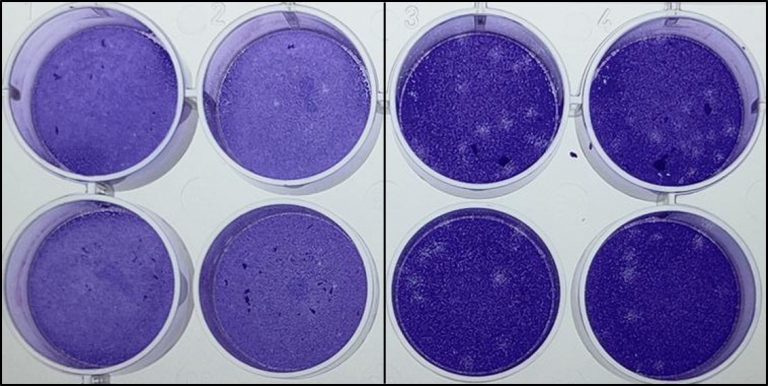
“We’re working toward treatments that can be broadly effective against all types of coronaviruses so that we can respond to not only current health challenges, but also future pandemic threats. Identifying this compound and the pathway by which it works to stop viruses is an important step in that direction.”
Targeting the host, not the virus
The researchers credit the compound’s broad effectiveness to the unique way it works. Rather than targeting the virus itself, the compound targets a human cellular process that coronaviruses use to replicate.
Since viruses can’t reproduce on their own, they rely on protein-synthesis pathways in host cells to create copies of themselves. In the case of coronaviruses, they use a human enzyme called GSK3 beta that exists in all human cells.
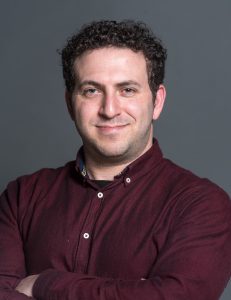
“We found that coronaviruses hijack this human enzyme and use it to edit the protein that packs its genetic material,” says Dr. Tirosh Shapira, a postdoctoral fellow at UBC’s faculty of medicine and the study’s first author. “This compound blocks GSK3 beta, which in turn, stops the virus from reproducing and maturing its proteins.”
The compound is part of a broader family of experimental drugs known as GSK3 inhibitors. Since the late 1990s, scientists across academia and industry have been studying GSK3 inhibitors for their potential as treatments for a number of diseases, including diabetes, Alzheimer’s and cancer.
“By targeting this cellular pathway, rather than the virus itself, we see broad activity against multiple pathogens. We’re also acting on a pathway that is so far immune to changes between variants and different coronaviruses,” says Dr. Shapira.
Future-proof treatments
To identify the compound, the research team screened a library of nearly 100 known GSK3 inhibitors, provided through a collaboration between UBC and Takeda Pharmaceutical Company in Japan. The compounds were tested in cell and tissue models infected with SARS-CoV-2 and the common cold virus.
The testing yielded multiple GSK3 inhibitors that showed a high level of effectiveness against the coronaviruses and low toxicity to human cells. The leading compound, identified as T-1686568, inhibited both SARS-CoV-2 and the common cold virus, the main criteria the authors used in the search for broad-spectrum protection.
“While these are early days, it’s encouraging to see broad levels of effectiveness in tissue models,” says Dr. Shapira. “Because these compounds require many years of testing and regulatory approval before they can potentially reach patients, we need to be thinking about long-term applications and how this could apply broadly to future viruses and variants.”
The research was conducted at UBC FINDER, a level-3 biocontainment facility at UBC where researchers are working with highly infectious pathogens with an aim to develop future treatments.
“We’re not just fighting SARS-CoV-2, we’re looking ahead at what’s next,” says Dr. Shapira. “We’re focused on identifying future-proof treatments for variants and viruses that emerge down the road and rely on the same cellular mechanisms to grow and infect.”
This research was supported by the TB Veterans Association, Genome British Columbia and the BC Lung Foundation.
This article, with the exception of the title, is an exact replication from UBC News Dec 14th Published by Brett Goldhawk
Latest News

LSI researchers awarded funding in Spring 2025 CIHR project grant competition
July 21, 2025

Jayachandran Kizhakkedathu awarded New Frontiers in Research Fund – Exploration Grant
July 14, 2025

LSI researchers awarded funding through NSERC grants
July 11, 2025
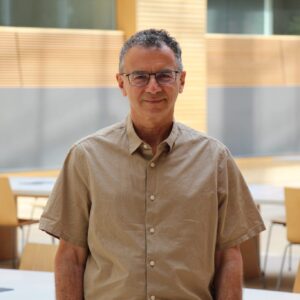
Dr. Ivan Robert Nabi awarded Distinguished Achievement award by the UBC Faculty of Medicine
June 24, 2025
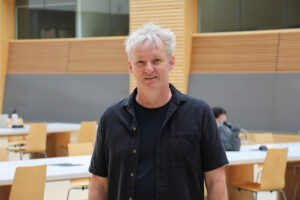
Dr. Douglas Allan Receives Co-Funded Grant from Alzheimer Society and Brain Canada
June 20, 2025

LSI Researchers Receive National Recognition for Stem Cell Innovation
June 20, 2025

Dr. Mark Cembrowski awarded over $4.8 million to advance neuroscience research
June 18, 2025
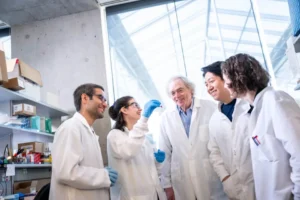
Dr. Pieter Cullis profiled by CIHR for pioneering work in drug delivery and mRNA vaccines
May 29, 2025

LSI PIs Sarah Hedtrich and Arun John Peter named Canada Research Chairs
March 28, 2025
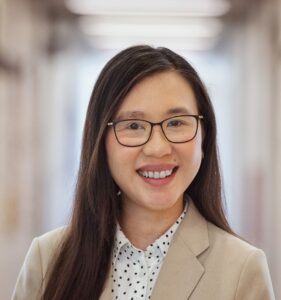
Dr. Emilia Lim Named Dr. Victor Ling Terry Fox New Investigator
February 27, 2025
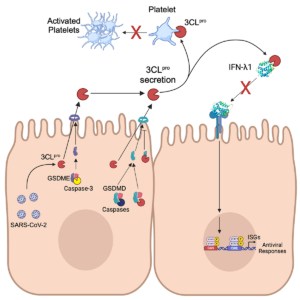
Unconventional secretion of the SARS-CoV-2 main protease opens the door for new extracellular biology in viral infection
February 11, 2025

LSI researchers awarded funding in Fall 2024 CIHR Project Grant competition
January 30, 2025
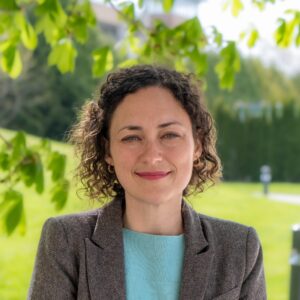
UBC evolutionary ecologist and LSI PI, Dr. Kayla King, awarded Arthur B. McDonald fellowship
November 21, 2024
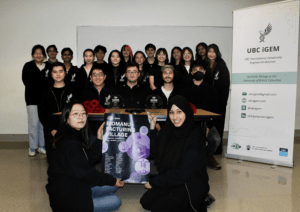
UBC iGEM Team Wins Top Awards for Novel DNA-Based Data Storage Platform
November 13, 2024

Congratulations to LSI PIs receiving 2024 MSHRBC Scholar Awards!
October 1, 2024